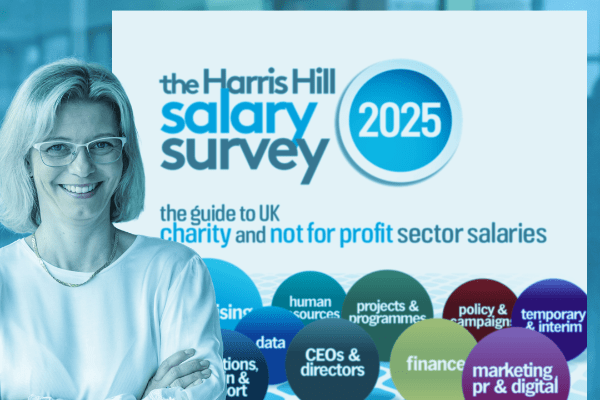Ever feel like you're faking it? You're in good company, as Nicola Greenbrook explains in this month's guest post, exploring the psychological pattern of Impostor Syndrome (IS), how it could be affecting you, and what you can do about it.


You're fully-qualified and experienced in your industry, role or position but do you worry one day you'll get 'found out'?
Even with regular praise for your accomplishments, do you discount your efforts and feel like a total fluke? Do the voices in your head tell you you're no good before that all-important presentation?
You may be suffering from Impostor Syndrome...and you're not alone.
What is Impostor Syndrome?
Every quarter the Oxford English Dictionary adds a raft of new terms or words to keep up with the rapid development of the English language. Along with 'binge watch' and 'silent generation', the latest update includes IS.
Defined as 'the persistent inability to believe that one's success is deserved or has been legitimately achieved as a result of one's own effort or skills', it's not a new syndrome despite the recent OED entry.
It was first identified in 1978 by clinical psychologists who noticed that certain high-achieving women believed the success they had worked so hard for was purely luck and, therefore, were unworthy of it. They thought they'd fooled everyone and were a fake, an impostor.
Facebook's COO Sheryl Sandberg talked about IS in her 2013 book Lean In: Women, Work and the Will to Lead. She admitted being a sufferer, explaining "...every time I took a test, I was sure that it had gone badly. And every time I didn't embarrass myself - or even excelled - I believed that I had fooled everyone yet again".
How do you recognise it?
People affected by IS usually have a proven track record of success and receive plenty of external validation of their achievements.
They're often on the receiving end of praise and compliments, but the cunning nature of IS means that for sufferers the effects are heightened rather than alleviated - they'll believe the confidence trick they play must be working even better. Rather than accept, they'll bat off compliments or discount their personal involvement in a successful project.
Other symptoms of IS include:
- Belief that success is only down to good fortune, not hard work or talent, or that someone has clearly made a mistake or is going to take it away from you any time soon.
- Fear that people you consider important (seniors, mentors, people you look up to etc) will find out you're not as capable as they think you are.
- Constantly comparing yourself to others, believing everyone else to be superior or more intelligent than you.
- Being dismissive of praise for an accomplishment, toning it down or depreciating the importance.
- Focusing or ruminating on incidents where you've not done your best, or made a mistake, more than the times when you did do your best.
Perfectionism is often seen as a correlate of IS. Those with a tendency to consider themselves an impostor will internalise every flaw, mistake or criticism and feel a glum sense of satisfaction when it happens - 'there you go, that proves it. I'm not perfect and therefore, no good at what I do'. Mistakes can slowly but surely dent self-confidence and people who feel the need to do everything perfectly may feel fraudulent when they can't achieve this impossible standard.
Who does it affect?
Although IS generally affects high-achievers and those with a reputation for success, the phenomenon doesn't discriminate.
From Maya Angelou (Pulitzer Prize nominee, multiple Grammy-winner for spoken recordings and much more) to Lupita Nyong'o (hugely influential actress, Best Actress Oscar winner) and Albert Einstein (you may have heard of him), there are many well-known and successful people who suffer from low-esteem. Actress, comedian, writer and producer Tina Fey once confessed that she sometimes screams inside her head, "I'm a fraud! They're on to me!".
According to a major 2011 study, it's estimated that 70% of people will experience the feelings of IS to some degree in their lives. It's often perceived as something more likely to affect women, while Yomi Adegoke writes in The Pool that race can also play a part, noting that 'when you're at the intersection of both race and gender - as women of colour are - the feeling can be doubly hard to shake'.
Meanwhile The British Psychological Society recently reported research claiming that under pressure, IS may actually hit men harder than women, causing increased anxiety and impacted performance, which they speculate may be due to traditional gender norms placing a greater expectation on men to be competent.
So it seems IS can affect anyone - from actresses to journalists, to inventors to authors. Oh, and me.

Why do we need to address it?
IS is an insidious creature. According to New York Magazine's Science of Us, those with high IS have difficulty feeling satisfaction about a job they've done really well, which could mean they take less pleasure and meaning from their work.
It's also been reported that IS sufferers tend to people-please, overwork and may even suffer from stress and depression. They often experience self-doubt and are generally uncomfortable with their achievements, refusing to believe in themselves. This can be damaging for their colleagues, their team and even their personal relationships.
However writer and life coach Fiona Buckland believes that if you spot the symptoms, this can present a great opportunity. You may develop greater self-awareness, 'generate pragmatic empathy' and apply practices in your work and personal life that could support you to live a more fulfilled life.
How to cope with it
Inspired by Fiona's article for The Guardian, here are some of my suggested coping strategies:
- Next time you convince yourself you're a fake, stop and take a breath. Name the feeling for what it is - impostor syndrome. You may start to feel a sense of control and begin to spot the signs before you're overwhelmed.
- Don't forget you're the expert in your field and if someone is asking for your help or guidance, they lack the knowledge only you can provide. If the CEO is asking for your HR advice, it's because they aren't an HR professional. They genuinely value, and need, your expertise.
- Write down 'your story'. Think about your qualifications, jot down a synopsis of your career history and proudly list your key achievements. Refer to it privately in those 'wobbly' moments. Soon you may realise it's not down to luck, but sheer hard work, tenacity and skill.
- Enlist the help of a mentor or someone else you know with IS who may be willing to share similar experiences and swap coping strategies. Ask HR if you're unsure where to begin.
- Clarify your values, think about what you stand for and write it down somewhere you can easily refer to it. You'll soon know what you uniquely have to offer so you can stop pretending you're someone else.
-------------
Impostor Syndrome is a complex and difficult condition but if you can relate to any of the symptoms or descriptions in this article, or if the voices in your head are particularly LOUD today, you're not alone.
Fiona believes if you recognise your IS, sense some control over it and practice some of the coping strategies that work for you, it can be overcome. Consider how you can use IS to your advantage to keep on your toes and motivate you.
Helen Mirren once said "It would be wrong to think that you're always right and correct and perfect and brilliant. Self-doubt is the thing that drives you to try to improve yourself."
Life is a lot better, after all, when you can appreciate who you are and what you've accomplished. You're doing great.
Nicola Greenbrook - HR Specialist & Freelance Writer

-

Opportunity for all
Find out how we’re working to deliver more diverse, equitable and inclusive recruitment…
-

Recruiting a charity CEO?
Our executive recruitment specialists have an exceptional record of successful CEO, chair, trustee and…
-

Charity sector salaries
Our 2025 Salary Survey has the latest rates and expert insight for roles throughout the sector.













